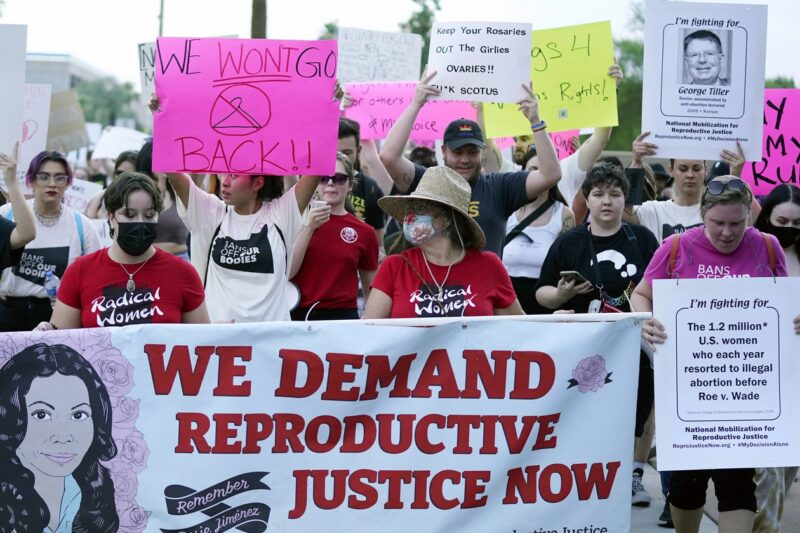States where abortion is legal, banned, or under threat
Share
Explore Our Galleries
Breaking News!
Today's news and culture by Black and other reporters in the Black and mainstream media.
Ways to Support ABHM?
Caroline Kitchener et al., The Washington Post

Access to abortion remains a patchwork of state-by-state policies after the Supreme Court overturned Roe v. Wade, with abortion restricted across much of the Southern United States. In the six months that followed the ruling, there were an estimated 43,410 fewer legal abortions in states that had bans, according to a recent survey.
New restrictions are continuing to take effect, with Republican-led legislatures pushing to enact bans in some states that have become abortion havens. In April, Florida passed a six-week ban, which will outlaw most abortions in the country’s third most populous state. More restrictions in other states are almost certainly on the way.
States we’re watching in 2023
Many states will consider multiple pieces of antiabortion legislation this session. We’ve listed those we’ll be watching most closely.
Wyoming- Wyoming lawmakers passed a second near-total abortion ban in March, after an earlier ban was blocked by the courts. The latest version of the near-total ban was also temporarily blocked.
North Dakota- The near-total ban triggered by the fall of Roe v. Wade is currently blocked by the courts, but Republican lawmakers moved quickly to pass an additional near-total ban in 2023 that they hope will withstand court challenges.
Florida- Florida Republicans approved a ban after roughly six weeks of pregnancy. The bill will take effect 30 days after one of a few scenarios occurs — most likely, 30 days after the state Supreme Court issues a decision on the constitutionality of the 15-week ban that is already in effect.
Discover which of our 50 states still offer legal access to abortion in the original article.
Read about how abortion bans disproportionately affect women of color here.
Find more Breaking News here.









Comments Are Welcome
Note: We moderate submissions in order to create a space for meaningful dialogue, a space where museum visitors – adults and youth –– can exchange informed, thoughtful, and relevant comments that add value to our exhibits.
Racial slurs, personal attacks, obscenity, profanity, and SHOUTING do not meet the above standard. Such comments are posted in the exhibit Hateful Speech. Commercial promotions, impersonations, and incoherent comments likewise fail to meet our goals, so will not be posted. Submissions longer than 120 words will be shortened.
See our full Comments Policy here.